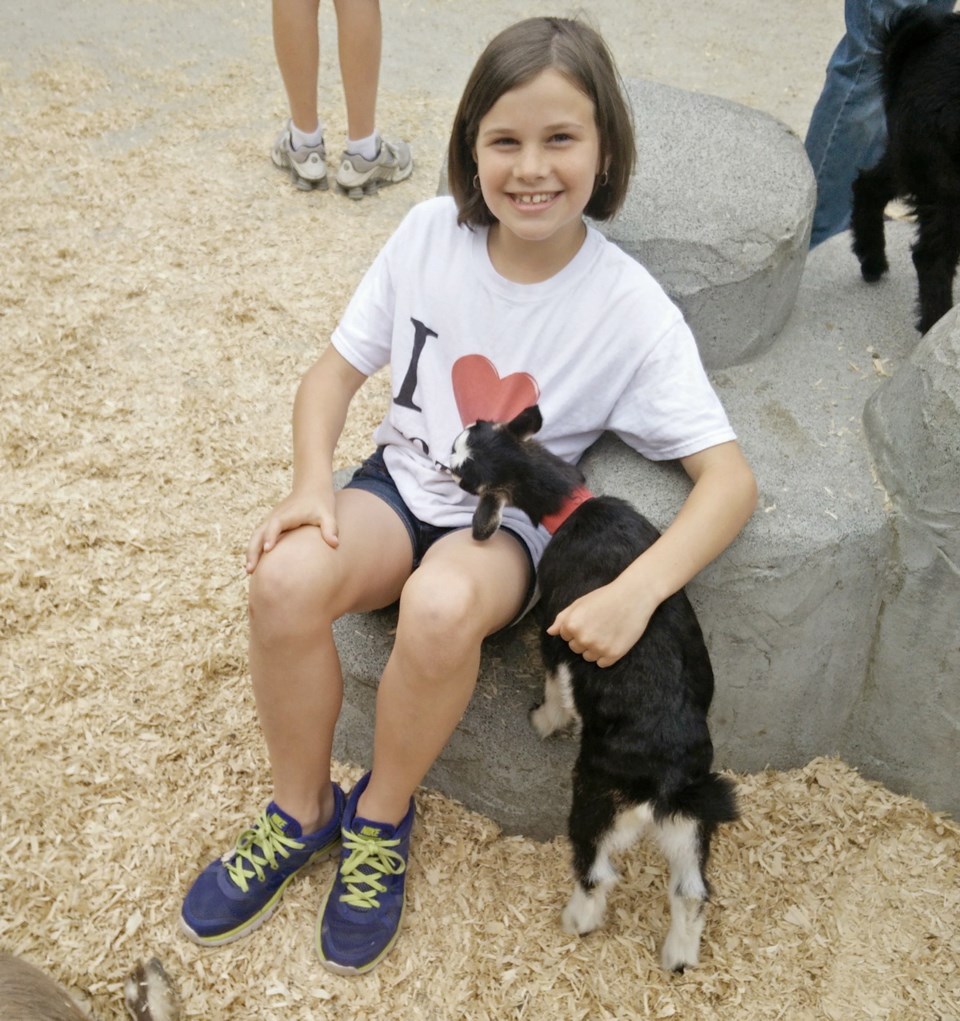Jillian McCue isn’t kidding when it comes to miniature goats in Saanich backyards.
The 11-year-old Gordon Head girl began asking the District of Saanich two years ago to consider a bylaw to allow residents to keep the “cute and cuddly” creatures on city lots, but her letter got no response — despite a petition of 132 names, including that of B.C. Green Party MLA Andrew Weaver.
On Monday night, Jillian was back before council, explaining the environmental advantages of a quiet natural lawnmower that produces pure milk and good, clean fertilizer.
“Not only can they mow your lawn, but they eat invasive plants like blackberry bushes and ivy without polluting the air and sound,” the Grade 6 Gordon Head Middle School student told council.
While charmed by her confident presentation, council wasn’t charmed enough to vote in favour of staff coming back with a report to council on the virtues of such a policy, which would follow in the hoofprints of a similar bylaw passed in Seattle in 2007.
Only Mayor Richard Atwell voted for that motion.
Instead, Jillian was asked to address three separate advisory committees in June, in time for a council vote before summer adjournment. “Government efficiency at work,” Atwell said to loud applause from members of the public in attendance.
Jillian is hoping for a Saanich version of the Seattle bylaw, which allows up to four miniature goats on properties of at least 20,000 square feet.
As far as her father, Rich McCue, knows, the current Saanich bylaw allows only two goats on properties of at least 1.6 acres, or about 70,000 thousand square feet.
Goats must be female, neutered males and de-horned. All goats must be licensed at a cost of about $30.
Wearing a Give Me Goats! T-shirt, Jillian told the Times Colonist after her presentation that she will try to find out how many goats Seattle residents have opted to have on their properties in the past few years. She said she’s happy to come back to three committees.
Not everyone is keen on the idea of goats on neighbouring lawns, however. Council also received two letters against the idea.
“Tell people who want animals to move to an acreage,” said Brenda Pengelly and Merv Holowka, who said noise from a neighbour’s chickens is spoiling their summer outdoor experience.
Sheila Turner also objected, saying a typical backyard would feed a goat for only a day or two, and that goat droppings are a lot harder to pick up than dog droppings.
“I doubt there will be much uptake on backyard goats, but the district needs to look at the good of the larger community and not be swayed by the age of the presenter,” she said in her letter.
The Seattle PI website reported in 2007 that the city’s goat bylaw was legislated “at the request of a single goat-loving constituent” who collected nearly 1,000 pro-goat signatures.
Jillian started her research for a school science experiment, asking people at the Beacon Hill Children’s Farm to sniff an unmarked bag of goat excrement and compare it with smellier doggy do.



